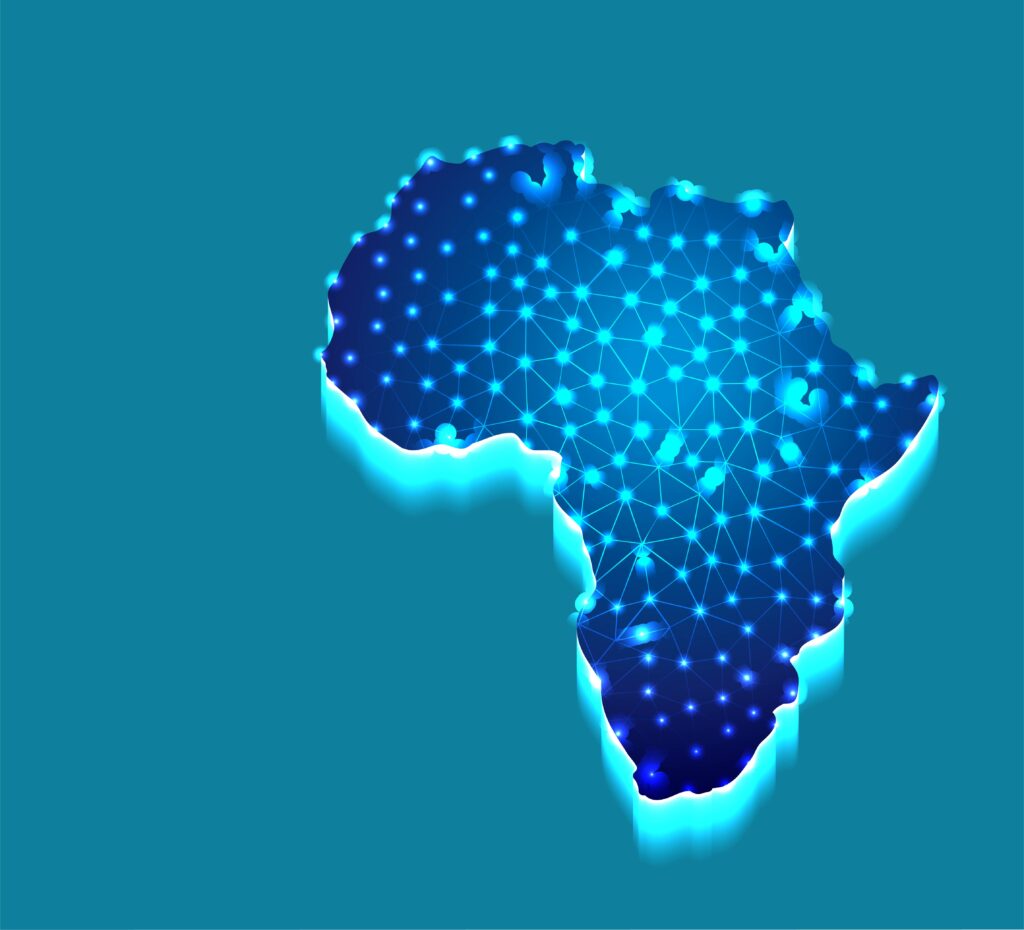This website uses cookies so that we can provide you with the best user experience possible. Cookie information is stored in your browser and performs functions such as recognising you when you return to our website and helping our team to understand which sections of the website you find most interesting and useful.
Artificial intelligence, sustainable development and geopolitics in Africa
The African technology or tech sector has had a growth rate equivalent to 47% during the past five years. This development is based on a strong entrepreneurial culture fuelling transformative change in sectors such as energy, health services, pharmaceuticals, sustainable agriculture and land use.
Artificial intelligence (AI) has the potential to drive economic growth and development by improving productivity and efficiency in society, but can at the same time create dependence on foreign technologies, if not designed and developed within a country or region’s own borders. Such dependency can deepen the global technology gap. To create this competitiveness and autonomy, Africa needs investments within the AI sector and in AI-related education, and access to the latest and global AI research. In addition, the personal data from its users constitute a valuable commodity on the global market which without proper oversight could lead to a loss of data sovereignty and a potential misuse of data.
The hope is that AI-enabled technology can act as an enabler to achieve the 2030 Agenda, but it may at the same time also trigger inequalities that inhibit achieving the UN Sustainable Development Goals (SDGs). As a consequence, decision-makers and legislators in Africa – and elsewhere – need to understand the new logic and the effects that come with using AI in different forms and sectors, and to what extent it already affects and will affect people and societies far into the future.

Key messages
- Applied AI is changing the conditions of life in all parts of society. Therefore, there is a strong need for decision-makers, as well as those working in in legal settings, to understand AI applications’ far-reaching societal effects – in Africa and elsewhere. For instance, AI in financial services is developing rapidly and has the potential to disrupt traditional financial services, as cash is still used in around 90% of all economic transactions in Africa. Similarly, better data treatment would have an impact within the AI branch of natural language processing, where computers are trained to understand the way that humans write and speak. This is especially important for the approximately 2000 different languages spoken in Africa.
- The field of AI is moving quickly, and African nations are in danger of falling behind. Infrastructure development, urban mobility, rural accessibility, green energy and inter-urban connectivity has increased transparency and opened up expectations, but that at the same time makes Africa more exposed to geopolitical challenges, such as an over-reliance on foreign financing that in turn creates a risk of debt traps. Thus, regional cooperation and external partnerships will be key, and the danger of the giants in the field taking over gives rise to the need for oversight.
- African nations and communities require support to be able to create innovative strategies and strong ecosystems involving industry, academia, the public sector and civil society. Robust AI ecosystems can improve competitiveness, lower development costs, and reduce dependence on foreign AI companies. If doing so, AI has great potential to tackle urgent sustainability challenges in Africa, such as: preventing and reducing the effects of flooding and wildfires, protecting wildlife or making healthcare and education available in remote areas.
Conclusion
Creating sustainable global development, based on present and future innovations and technologies, requires knowledge transfer and an exchange of experiences that opens up for dual capacity building. In particular, such efforts should not forget the perspective and experiences of the global South. Across Africa, the need is great for a robust digital infrastructure and renewable energy in order to benefit from AI, as well as a robust regulatory frameworks concerning how data are being collected, processed, saved and destroyed – for protection and for trust.


 22/05/2023
22/05/2023

 Authors of this publication
Authors of this publication
